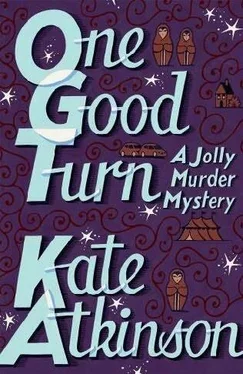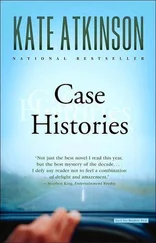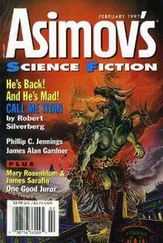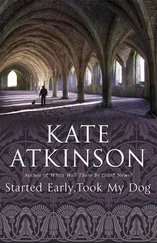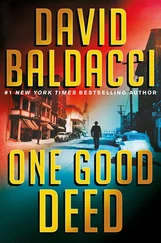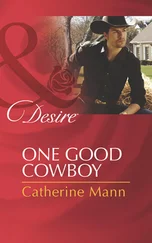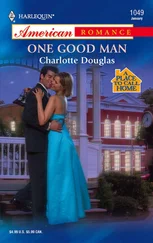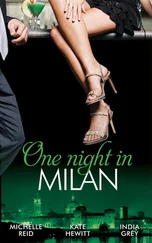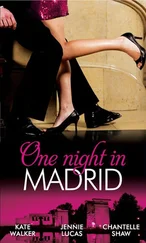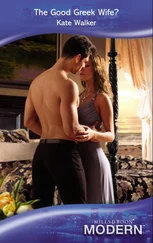Kate Atkinson - One Good Turn
Здесь есть возможность читать онлайн «Kate Atkinson - One Good Turn» весь текст электронной книги совершенно бесплатно (целиком полную версию без сокращений). В некоторых случаях можно слушать аудио, скачать через торрент в формате fb2 и присутствует краткое содержание. Жанр: Триллер, на английском языке. Описание произведения, (предисловие) а так же отзывы посетителей доступны на портале библиотеки ЛибКат.
- Название:One Good Turn
- Автор:
- Жанр:
- Год:неизвестен
- ISBN:нет данных
- Рейтинг книги:4 / 5. Голосов: 2
-
Избранное:Добавить в избранное
- Отзывы:
-
Ваша оценка:
- 80
- 1
- 2
- 3
- 4
- 5
One Good Turn: краткое содержание, описание и аннотация
Предлагаем к чтению аннотацию, описание, краткое содержание или предисловие (зависит от того, что написал сам автор книги «One Good Turn»). Если вы не нашли необходимую информацию о книге — напишите в комментариях, мы постараемся отыскать её.
One Good Turn — читать онлайн бесплатно полную книгу (весь текст) целиком
Ниже представлен текст книги, разбитый по страницам. Система сохранения места последней прочитанной страницы, позволяет с удобством читать онлайн бесплатно книгу «One Good Turn», без необходимости каждый раз заново искать на чём Вы остановились. Поставьте закладку, и сможете в любой момент перейти на страницу, на которой закончили чтение.
Интервал:
Закладка:
Paul Bradley.
“I’m not going to die, Martin,” he said.
“I hope not,” Martin said, “but I’d like to make sure. You can go,” he said, turning suddenly to the taxi driver, slamming the passenger door of the taxi shut and slapping it twice with his palm as if it were a horse’s flank, an uncharacteristically emphatic gesture that took him by surprise. He picked up Paul Bradley’s bag, strode up the stone steps, and windmilled his way through the revolving door of the Four Clans before Paul Bradley could raise any further objections.
Paul Bradley followed him into the empty reception area and, making a gesture of helplessness, laughed and said, “Okay, Martin, mate, have it your way.”
The hotel smelled of fried bacon, despite the time of day, and made Martin salivate although he hadn’t eaten pig in twenty years and had no desire to start now. The hotel was surprisingly cheap and unsurprisingly awful. Anything that could be decorated with tartan was, even the ceiling had been papered in a funereal Black Watch. On the walls were hung framed prints of Old Edinburgh and heraldic clan insignia mounted on wooden shields.
Martin had a book about tartans, bought when he was looking for one for himself for a kilt, in the expectation that as a writer he would have a glamorous life attending black-tie dinners and celebrity launches, perhaps a reception at Holyrood Palace. “Alex Blake” had received a great many invitations in the past, but Martin always felt he was an inadequate substitute for his more exciting counterpart, people always seemed to be looking over his shoulder for the appearance of the real Alex Blake, and nowadays he rarely attended anything.
His mother was a MacPherson before her marriage, so he had eventually decided on a kilt made up in a MacPherson dress green but had never had the nerve to wear it in public, and it hung neglected in his wardrobe. Occasionally he tried it on and wore it around the house, but it was an odd, closeted act, as if he were a secretive transvestite rather than a swaggering Scot.
Paul Bradley banged authoritatively on the old-fashioned brass bell at the reception desk. It sounded very loud in the muffled atmosphere.
“You don’t think it’s a bit late for checking in?” Martin said, and Paul Bradley frowned at him and said, “It’s me that’s paying them , Martin, they’re not doing me a favor.”
An unfriendly night porter appeared and made a performance of searching for Paul Bradley’s reservation. He looked them both up and down and said, “It says a single here.” Martin wanted to say, “We’re not gay,” but then perhaps Paul Bradley was gay and would find his protestations insulting. (Perhaps the night porter was gay.) Martin thought that if he himself was gay, Paul Bradley would probably be out of his league as a partner, even for a night.
“I’m not staying,” Martin said to the night porter, “not really. I’m not sleeping .”The night porter barely glanced at the dressing on Paul Bradley’s temple.
“I don’t give a monkey’s nut what you do,” the night porter said in a long-suffering way, “but you have to pay for a double if there’s two of you in the room.”
“No problem,” Paul Bradley said pleasantly, taking more twenties from his wallet and placing them on the counter.
Martin tried to take the holdall again, but Paul Bradley said, “Give us a break, Martin, you’re not my manservant,” and swung the heavy bag over his shoulder as if it weighed nothing and set off up the stairs, Martin in his wake, following the path of a Dress-Stewart stair-carpet. He avoided meeting the wretched gaze of the large, moth-eaten stag whose decapitated head had been hung above the stairs. He wouldn’t have been surprised if it had suddenly opened its mouth and spoken to him. He wondered why it was all right to mount stags’ heads but not, say, horses’ heads or dogs’heads.
The room had a double bed, despite it being nominally a single, and Paul Bradley threw his bag down on the brown-and-orange bedspread and said, “I’ll take the left side, you take the right,” in an easy manner that made Martin think he was used to sleeping anywhere, used to sleeping with other men in a nonsexual way. He had known a lot of Paul Bradleys when he was younger. Army.
“Were you in the army?” he asked. He realized it was the first personal question he had asked him. Paul Bradley gave him a quizzical look but held it a little longer than most people would have, so Martin said, “Sorry, didn’t mean to pry.”
Paul Bradley shrugged it off, saying, “That’s okay, I’m not hiding anything. I was in the navy, actually. SBS. We don’t seek out attention like the SAS do. Now I’m just a desk jockey, pushing pieces of paper around. Very boring. Have you served in the forces, then?”
“Not exactly,” Martin said. “My father was a CSM, he brought us up in a domestic boot camp.”
“Us?”
“My brother and me. Christopher.”
“Are you close?”
“No,” Martin said. “Not really.” He could see what Paul Bradley was doing, turning the tables, questioning Martin to avoid answering anything about himself. “I’ll just sit in this chair here,” he said. “I’m supposed to be watching you, not sleeping.”
“Up to you,” Paul Bradley said, taking the holdall into the tiny en suite and shutting the door. Martin tried to close his ears to the noise of another man washing, brushing, peeing. He switched on the television in an effort to mask the sounds, but it was showing snow on all channels. He leafed idly through the only reading matter in the room, a brochure advertising Scottish tourist attractions- a mishmash of whiskey distilleries, woolen mills, and heritage trails.
“The bathroom’s free,” Paul Bradley said when he emerged, smelling of cheap soap and toothpaste. Martin felt like the shy bride on a virgin honeymoon, the groom oblivious to his blushing reticence.
Paul Bradley opened the minibar and said, “Have a drink.”
“Maybe just a mineral water,” Martin said, but when he inspected the minibar he saw that water was too sophisticated a request. Its contents were basic, no water or mixers, no Toblerone, no unpalatable Japanese crackers or quarter bottles of champagne, not even any salted peanuts-just cans of lager, spirit miniatures, and Irn-Bru. The sight of the miniatures triggered a sudden desire for alcohol, something to wash away the turmoil of the day.
“Let me fix you something,” Paul Bradley said, retrieving a tiny bottle of whiskey and a can of Irn-Bru. “Hang on, I’ll get a glass from the bathroom.”
Martin looked in horror at the glass of orange liquid that Paul Bradley came back with but felt obliged to say, “Thanks,” and take a drink. He was sure there were cells in his liver that were committing suicide rather than dealing with Scotland’s two national drinks together in one vile cocktail. The copper tones of the room’s decor, the fluorescent orange of the Irn-Bru, and the marmalade tint of the sodium streetlamp outside the window all contributed to Martin’s sense of alienation, as if he had stepped into a sickly science-fiction world, tainted by some ecological catastrophe.
“All right?” Paul Bradley said.
“Yes, fine,” Martin said. He took another drink of the orange liquid. It was deeply unpalatable yet strangely compelling. Swiftly, without sign of any self-consciousness, Paul Bradley stripped down to a gray T-shirt and gray boxers. Expensive, nice cotton jersey fabric, Martin noticed, although he averted his eyes almost immediately and stared instead at a surprisingly graphic print of Culloden that was hanging above the bed-bodies being pierced by bayonets and swords, open mouths, heads tumbling. When he next looked, Paul Bradley was on the bed, on top of the orange-and-brown coverlet. Martin wondered when it had last been washed. Within seconds, Paul Bradley’s features softened into sleep.
Читать дальшеИнтервал:
Закладка:
Похожие книги на «One Good Turn»
Представляем Вашему вниманию похожие книги на «One Good Turn» списком для выбора. Мы отобрали схожую по названию и смыслу литературу в надежде предоставить читателям больше вариантов отыскать новые, интересные, ещё непрочитанные произведения.
Обсуждение, отзывы о книге «One Good Turn» и просто собственные мнения читателей. Оставьте ваши комментарии, напишите, что Вы думаете о произведении, его смысле или главных героях. Укажите что конкретно понравилось, а что нет, и почему Вы так считаете.
